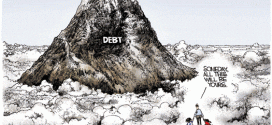Below are 10 factors considered by insurance companies when establishing what you have to pay for auto insurance coverage and some suggestions (some rather outlandish) how you might be able to positively influence some of them to your financial benefit.
pay for auto insurance coverage and some suggestions (some rather outlandish) how you might be able to positively influence some of them to your financial benefit.
1. Your Age & Gender
To an insurance provider, you are a male or female who was born on a specific day in a particular month of a year sometime in the mid-90s or earlier.
- Men & women are viewed differently.
- The young and young-at-heart are viewed differently too.
You call it sexism and ageism. They call it good business.
2. Your Marital Status & Years Driving
There are other ingrained elements which are, or were, changeable.
- The year in which you were licensed (and thus, the number of years you’ve been licensed) speaks to your experience as a driver.
- Your marital status, particularly if you’re a man under 25, will also play a role. Marriage can mitigate the damage being a young male can inflict in a group generally believed to be full of riskier, more accident-prone drivers.
3. Number of Traffic Tickets
While an initial traffic violation or speeding ticket may not negatively impact your future insurance premiums, continuing to behave in a way that attracts police officers will jack up rates. With infractions, payment is required twice: first at City Hall and again when next year’s rates kick in.
4. Had An At-fault Accident
Regrettably, nothing will impact your premium quite like an at-fault accident or three. A record free from collisions is to insurance premiums what fat-free cream cheese is to your waistline…
5. How Much or How Little You Drive
…Insurers care how much or how little you drive. You’re much less of a risk to an insurance provider if you’re on the road less than the average driver.
6. Whether You Commute or Not
…If commuting doesn’t make up a portion of your yearly driving mileage, insurance companies will respond favourably as your daily routine poses less of a risk.
7. Lack of Driving Experience
…[Insurance companies don’t care how long you’ve been licensed if you did not drive during many of those years. They are only interested in how many years of driving experience you actually have.]
8. Where You Park & Drive
…Aside from the probability of theft in an area with more crime, risk also rises with population. To put it bluntly, greater density indicates more vehicles with which you could potentially collide.
9. What You Drive
…Generally speaking – and there are exceptions – more expensive models cost more to insure. The theory goes like this:
- A premium-priced car will likely cost more to repair or replace.
- Certain models are also more likely to be stolen.
- Other cars may keep occupants healthier in case of an accident or be particularly cheap to repair while perhaps causing less damage to opposing vehicles…
10. The Extent of Your Coverage
The higher the deductible; the lower your rate. Other than minimizing or maximizing your deductible, methods remain which will shrink or enlarge your insurance premium. You probably don’t require maximum coverage on a decrepit high-mileage rust-bucket. If you want the sort of coverage that will pay for curb and asphalt repair at the collision site, there’s probably an insurance company that will write it in to the policy. Simply put, greater coverage equals higher payments. Be on the lookout for discounts through your profession, house/tenant insurance, or even travel rewards programs.
Conclusion
[Editor’s Comments: To put a humorous spin on how to reduce your car insurance rates given the above 10 points it would seem prudent (if you are REALLY serious about reducing your rate) to do the following:- If male get a sex change
- If young falsify your birth certificate
- If single get married, even if it is only a marriage of convenience
- Don’t speed or, at least, don’t get caught
- Don’t have an accident, and if you do, flee the scene if you think you can get away with it
- Don’t drive much or roll back the car’s odometer if you must
- Don’t drive to work. Either walk, hitch hike, take the bus/subway or take a job closer to home
- Move to a village or the countryside which will probably necessitate the need to quit your job in the city and find a local job
- Sell your current car and buy an old, cheap unreliable one
- Do some or all of the above and then buy the absolute minimum insurance coverage you can get and take your chances on the road.
There you have it. What have you decided you’re going to do? For me, given the options outlined above, I think I’ll just keep paying the going rate of insurance for my current car!]
The comments above are edited ([ ]) and abridged (…) excerpts from an article by Michael Banovsky
Thanks for reading! If you want more articles like the one above visit our Facebook page (here) and “Like” any article so you can get future articles automatically delivered to your feed. You can also “Follow the munKNEE” on Twitter or register to receive our FREE tri-weekly newsletter (see sample here , sign up in top right hand corner).
Remember: munKNEE should be in everybody’s inbox and MONEY in everybody’s wallet!
 munKNEE.com Your Key to Making Money
munKNEE.com Your Key to Making Money


